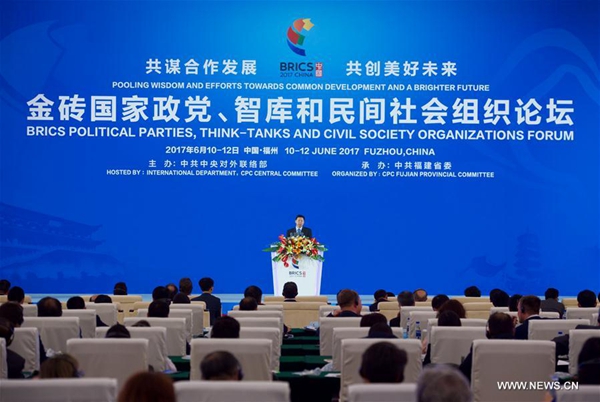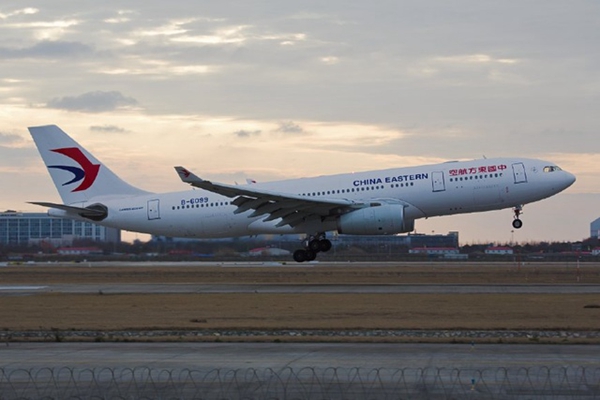|

|
|
Song Tao, head of the International Department of the Communist Party of China (CPC) Central Committee, addresses the closing ceremony of the BRICS Politial Parties, Think-tanks and Civil Society Organizations Forum in Fuzhou, capital of southeast China’s Fujian Province, June 12, 2017. [Photo/Xinhua]
|
Representatives of political parties, think tanks and non-governmental organizations in the five member nations of BRICS gathered in Fuzhou for a two-day forum and released the Fuzhou Initiative on Monday appealing for enhanced cooperation among BRICS countries.
The political parties, think tanks and civil society organizations from BRICS and several developing countries met in Fuzhou to exchange views and share experiences surrounding issues of common interest, with an aim to enhance cooperation among BRICS countries and with other emerging markets and developing countries. Recommendations will be submitted to the upcoming BRICS Summit in Xiamen scheduled for September.
“The deepening of all-round practical cooperation and the realization of mutual benefits and win-win results serve as an important foundation for BRICS partnership,” the initiative document stated. “BRICS countries should prioritize pragmatism and innovation in their cooperation in a manner that addresses the key social and economic challenges affecting their own countries respectively.”
It pointed out that BRICS countries should also intensify policy communication, expand the scope of cooperation, tap the potential of cooperation, increase and deepen cooperation with other emerging markets and developing countries, combat corruption and build clean governance.
The participants of the BRICS Political Parties, Think-tanks and Civil Society Organizations Forum also viewed that people-to-people and cultural exchanges play an important role in cementing BRICS strategic partnership and garnering public support for BRICS cooperation.
“Enjoying rich cultural resources, BRICS countries should capitalize on their respective advantages to actively engage in and collectively promote ever deepening and substantial people-to-people and cultural exchanges, so as to effectively enhance engagement and a sense of recognition for the peoples of BRICS countries,” it said.
The initiative forwarded that BRICS countries should intensify political and security cooperation, enhance coordination and make collective voices heard on major international and regional issues. “In countering terrorism, BRICS countries should enhance sharing of intelligence and experience as well as capacity building.”
Addressing the closing ceremony, Song Tao, head of the International Department of the Communist Party of China (CPC) Central Committee, said in his speech that BRICS political parties, think tanks and non-governmental organizations should facilitate cooperation that will elevate BRICS members to their role as practitioners of new globalization, advocators for new global governance and forerunners of new South-South cooperation.

